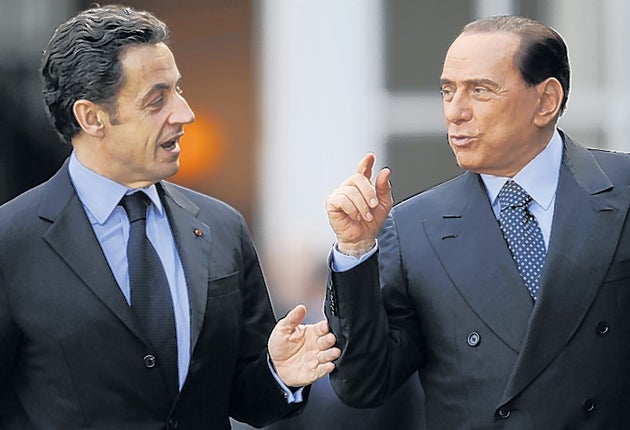France and Italy renege on pledges to aid Africa
Britain praised, but only a third of G8 Gleneagles money has been paid out

The rich world is failing to deliver on its side of an historic pact to improve the living conditions of millions of people in Africa, according to an assessment released today.
Only a third of the aid promised by the G8 group of industrialised nations has made its way to sub-Saharan Africa. This year's Data report describes the collective G8 assessment as "grim", blaming "exceptionally poor progress" by France and Italy, which were singled out as being responsible for 80 per cent of the funding shortfalls.
Almost a decade since they were set, the United Nations Millennium Development Goals, designed to eradicate extreme poverty by 2010, remain out of reach and rich nations are in danger of "defaulting" on their commitments.
The G8's self-imposed deadline is 18 months away but only $7bn (£4.3bn) of the $21.5bn in aid that was promised at the Gleneagles summit in 2005 has been delivered, according to One, the authors of the Data report.
The auditors are scathing in their assessment of France under President Nicolas Sarkozy and Italy under Prime Minister Silvio Berlusconi. "Certain members of the G8 are meeting and even beating the targets they set for themselves", says the report, which praises Germany and Britain, but "France's delivery is disappointing, and Italy's performance is an utter failure".
Foreign investment and trade has fallen as a result of the financial crisis. But the Africa Progress Panel, whose members include Kofi Annan and Graça Machel, argues in a separate report that the crisis has increased the importance of assisting those most in need.
Mr Annan, a former UN secretary general, says that poor Africans are hit by the costs of globalisation but "decoupled" from its benefits. After two years in which food and fuel crises dominated concerns on Africa, the US-led slump has hit African exports. In words that echo the effects of climate change, Mr Annan states: "Those who have contributed least to the crises have been affected most." African growth, which was forecast at 6.7 per cent for 2009, has been slashed to 1.7 per cent.
The reports, deliberately released back to back, also highlight the irony that aid flows have been curtailed just as real progress was being made.
Successes included extending Aids treatment to nearly three million people, reducing deaths from malaria, and ensuring 34 million more children attend school. For the first time in nearly 50 years, the economies of sub-Saharan Africa grew in 2008 by more than 5 per cent for a second consecutive year.
Germany, which has now surpassed France in terms of aid to Africa, is praised for expanding its assistance. Britain is singled out "as the first G8 country to meet the UN goal of spending 0.7 per cent of national income in overseas development assistance".
The reviews mention the need for good governance but do not seriously address concerns over the impact of aid flows into corrupt African regimes.
Join our commenting forum
Join thought-provoking conversations, follow other Independent readers and see their replies
Comments
Bookmark popover
Removed from bookmarks